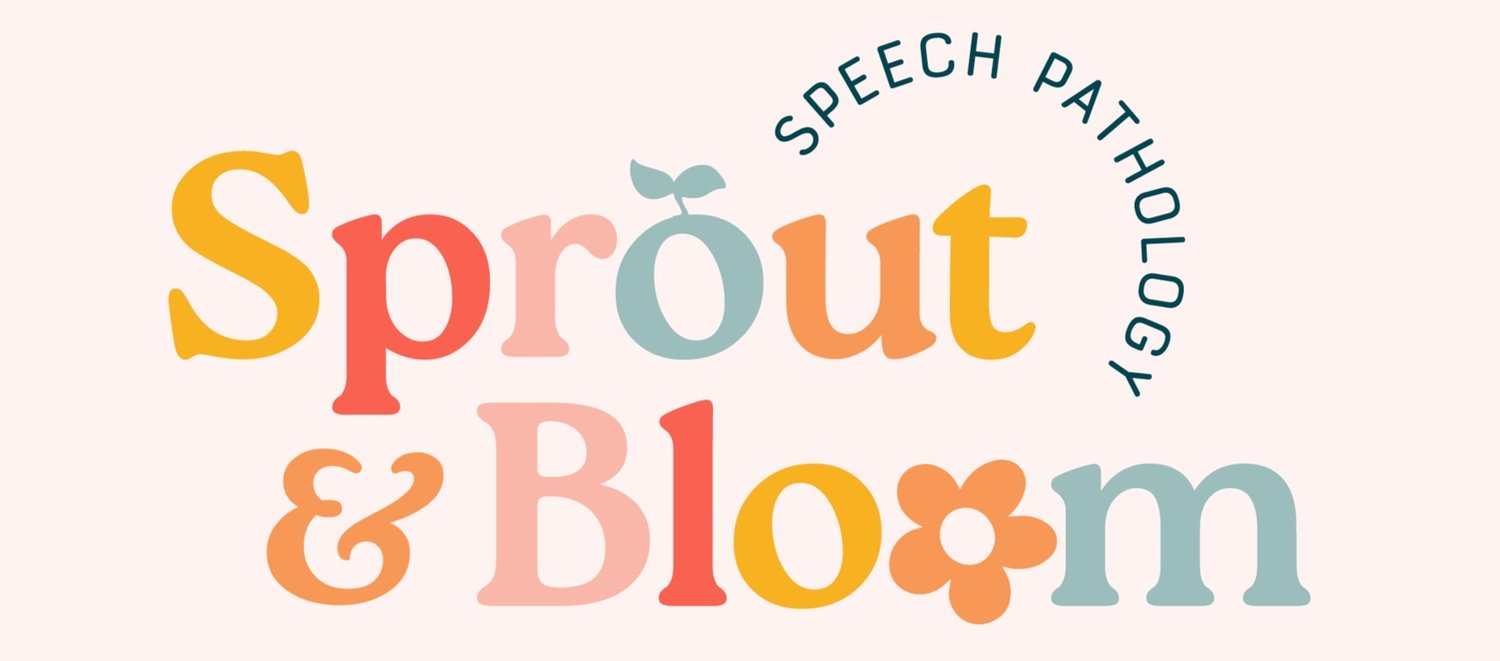Our Services
For Children
-
The term ‘speech’ refers to how we form the sounds to make words. Speech sound disorders can manifest in children being unable to say sounds clearly or changing sounds in words in a way that impacts their ability to be understood by others.
We can assess, diagnose, and treat speech sound disorders in order to improve a child’s intelligibility, or how easily they are able to be understood.
-
The term ‘language’ refers to the words we use to share our thoughts, feelings and ideas. A child with a language disorder may have problems with understanding others or expressing themselves, or a combination of both.
We can assess, diagnose and treat developmental language disorders and late talking. We predominantly follow the Hanen approach when designing our therapy programs for late talkers. You can find out more about Hanen here.
-
The term ‘stuttering’ refers to sound repetitions, pauses, and interjections that interrupt the flow (or fluency) of speech. At Sprout & Bloom, we choose to follow the Lidcombe program to diagnose and treat fluency disorders due to its excellent basis in research evidence and proven results in improving fluency of speech. You can find out more about the Lidcombe program here.
-
Feeding difficulties include problems with sucking, eating from a spoon, chewing, or drinking from a cup, as well as food aversions and behavioural difficulties associated with eating and drinking. Swallowing disorders, also called dysphagia, are difficulties with moving food or liquid from the mouth, throat, or oesophagus to the stomach. Feeding and swallowing disorders are often related to other medical conditions, but may also occur without a known cause.
We can provide assessment, diagnosis, treatment and management of feeding and swallowing disorders in young children (0-12momths).
For Adults
-
We follow the Lee Silverman Voice Technique to treat dysphonia (voice disorders) associated with Parkinson’s Disease. This includes an initial assessment, an intensive block of 16 forty five minute to one hour sessions over four weeks, a mid-way review, and an end of block review. We can also provide top-up sessions as required post the initial treatment. All of our LSVT services are provided via telehealth in the afternoon or early evening. You can find out more about LSVT here.
-
Swallowing difficulties, also known as dysphagia, can occur due to a variety of different underlying causes. Dysphagia can result in malnutrition and dehydration, aspiration pneumonia, compromised general health, chronic lung disease, choking, and even death.
Our dysphagia assessment will include a case history, discussion of your concerns, oromotor exam, swallowing assessment, and feedback of findings with recommendations for diet, fluids, and possible rehabilitation.
-
‘Voice’ refers to how your voice sounds when you speak; specifically, the volume, pitch, timbre, and overall quality. A voice disorder can be diagnosed when an individual expresses concern about having an abnormal voice that does not meet their daily needs—even if others do not perceive it as different or deviant.
We can provide telehealth services that to diagnose and treat your voice disorder, in liaison with your doctor and other specialists (i.e. an ENT). Our voice clinician is specialised in voice disorders related to oncology and Parkinson’s disease, but is experienced in treating dysphonia across all aetiologies.
